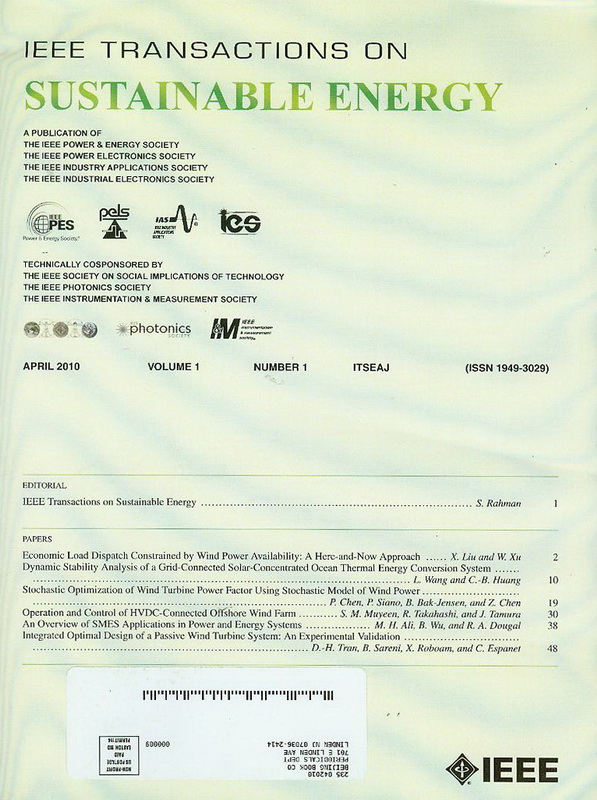Short-Term Operation Flexibility in Modular Power to Hydrogen Based Ammonia Industries
IF 8.6
1区 工程技术
Q1 ENERGY & FUELS
引用次数: 0
Abstract
Modularization of Hydrogen Electrolyzers (HEs) is projected to be immediate, resilient, and efficient for load management in large-scale Hydrogen Consuming Industries (HCIs). It offers a scalable and flexible solution that can adapt to changes in hydrogen and power system demands. However, Modular HEs are studied primarily as small-scale wind hydrogen systems only, converting excess Renewable Energy (RE) into hydrogen without the integration of rigid downstream operations. Downstream constraints in HCIs, like rigid hydrogen demands, device operational/ramping limits, and storage constraints, can limit or regulate modular HE's use for power system services. Furthermore, oversimplified HE operational modeling within HCIs leads to suboptimal outcomes for integrated modular HCI and RE-rich power system (RPS) operations, resulting in RE curtailments and inaccurate flexibility estimations. This happens due to improper loading rates arising from unrealistic inter and intra-modular HE operations. This work proposes a comprehensive model for modular HE management in integrated ammonia (HCI) and power systems for flexibility in sector-coupled scenarios. The work considers and demonstrates how downstream constraints regulate HEs flexibility through a unit commitment problem framework. HE operations with detailed and extended electrochemical dynamics are considered to improve and enhance operational flexibility calculations of growing RPS-based modular HCIs. This allows for better sectoral integration and estimation of power system services.氢基氨工业模块化电力短期运行灵活性
氢电解槽(HEs)的模块化预计将在大型氢消耗工业(hci)的负载管理中具有即时性、弹性和效率。它提供了一个可扩展和灵活的解决方案,可以适应氢气和电力系统需求的变化。然而,模块化HEs主要是作为小规模的风能氢系统进行研究,将多余的可再生能源(RE)转化为氢气,而没有整合严格的下游操作。hci的下游限制,如刚性氢气需求、设备运行/斜坡限制和存储限制,可以限制或调节模块化HE在电力系统服务中的使用。此外,在HCI中过度简化的HE操作建模会导致集成模块化HCI和富RE电力系统(RPS)运行的结果不理想,从而导致RE缩减和不准确的灵活性估计。这种情况的发生是由于不现实的模块间和模块内HE操作引起的不适当的加载率。这项工作提出了一个综合模型,用于集成氨(HCI)和电力系统中的模块化HE管理,以提高部门耦合场景中的灵活性。该工作考虑并演示了下游约束如何通过单元承诺问题框架调节HEs灵活性。详细和扩展电化学动力学的HE操作被认为可以改善和增强基于rps的模块化hci的操作灵活性计算。这样可以更好地对电力系统服务进行部门整合和评估。
本文章由计算机程序翻译,如有差异,请以英文原文为准。
求助全文
约1分钟内获得全文
求助全文
来源期刊

IEEE Transactions on Sustainable Energy
ENERGY & FUELS-ENGINEERING, ELECTRICAL & ELECTRONIC
CiteScore
21.40
自引率
5.70%
发文量
215
审稿时长
5 months
期刊介绍:
The IEEE Transactions on Sustainable Energy serves as a pivotal platform for sharing groundbreaking research findings on sustainable energy systems, with a focus on their seamless integration into power transmission and/or distribution grids. The journal showcases original research spanning the design, implementation, grid-integration, and control of sustainable energy technologies and systems. Additionally, the Transactions warmly welcomes manuscripts addressing the design, implementation, and evaluation of power systems influenced by sustainable energy systems and devices.
 求助内容:
求助内容: 应助结果提醒方式:
应助结果提醒方式:


